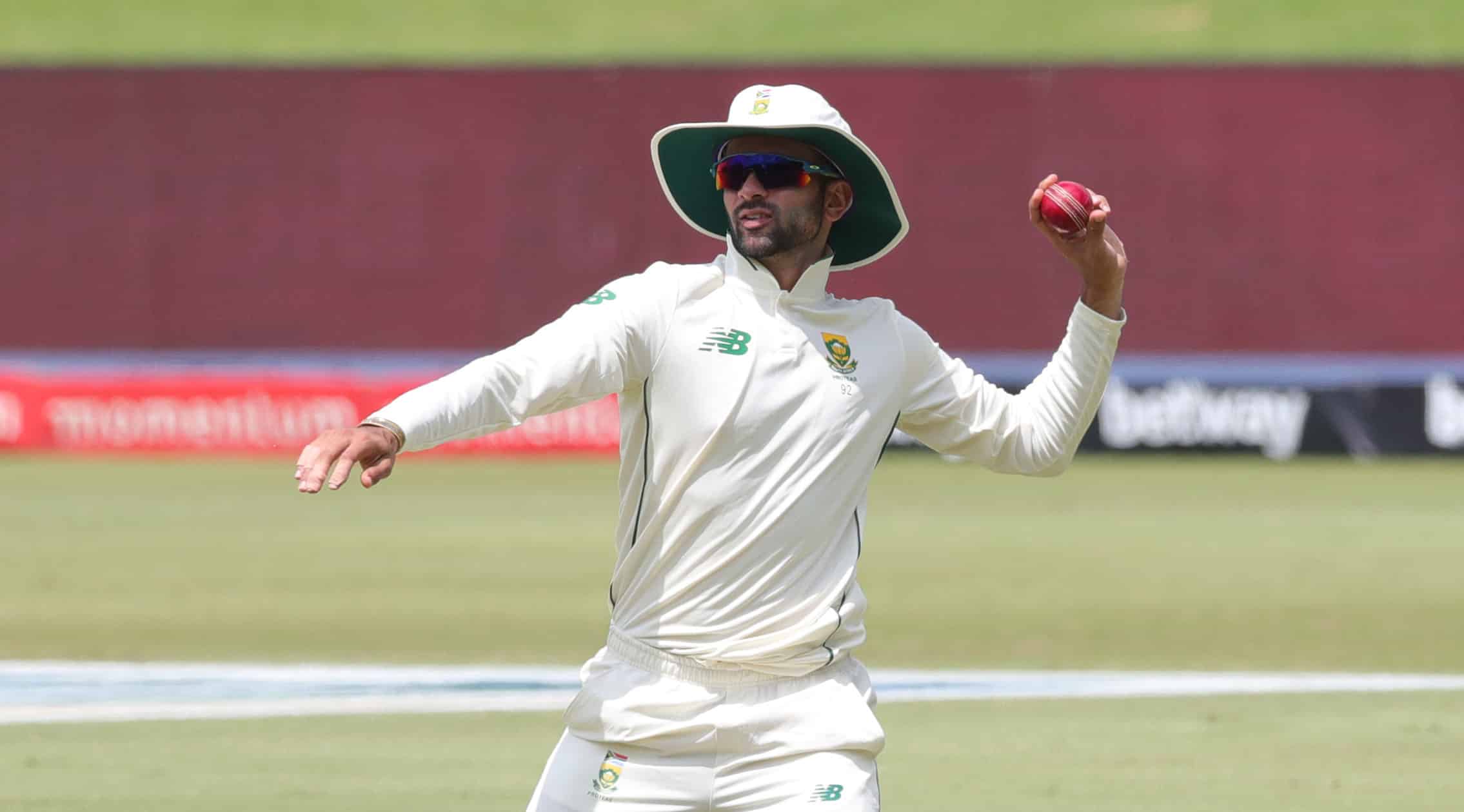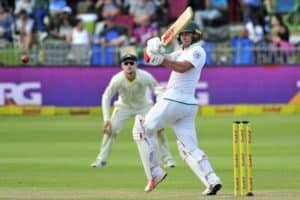It only took a chance opportunity for Keshav Maharaj to push his name to the forefront of the candidates to succeed Dean Elgar as Test skipper, writes RYAN VREDE.
In November 2020, I wrote that Elgar was the strongest candidate for the job, which was vacated by Quinton de Kock. Elgar, I argued, was not a natural leader in the mould of Graeme Smith or his predecessor, Faf du Plessis.
He was, however, a consistent performer and deeply respected for his grit and resilience, which I said were qualities the Proteas needed at that stage of their development.
In March of this year, Cricket South Africa announced Elgar as the Test captain. His tenure will carry through to the end of the World Test Championship cycle, which concludes in 2023. In a pool of what I thought were average candidates, or those still establishing themselves in the format, Elgar was the right call.
I have great respect for the qualities that define Elgar. He is a fine player and a highly competent leader. Yet, my head has been turned to the prospect of Maharaj leading the Proteas in Test cricket off the back of watching him distinguish himself in the ODI and T20I series against Sri Lanka, following Temba Bavuma’s injury-enforced withdrawal.
Most striking was Maharaj’s on-field presence, his tactical intelligence and feel for the match situation and charisma. He was brave without being reckless, and the game rewarded him for this.
Critically, he was a star performer. Maharaj took six wickets at an insane economy rate of 3.57 in the ODI series and, while he took just three wickets in the T20Is, his 10.1 overs cost just 43 runs at an incredible economy of 4.33. This suffocating display created pressure on the other end which contributed significantly to the Sri Lankans taking risks to accelerate their scoring rate. In the greater scheme of things, Maharaj was central to a 3-0 T20I series victory.
He will start at the upcoming T20 World Cup, having unseated George Linde, and has already established himself as a Test and ODI regular on the strength of his performances in those formats. This puts him in elevated company as a three-format player.
It is his Test standing that interests me most. Bavuma is the vice-captain, but his performances have been inconsistent. He averages 32 after 44 Tests, and scored just one century in that period. This return does little to advance his captaincy cause.
Personally, I desperately want Bavuma to succeed in Test cricket for reasons detailed in a piece I wrote in March. I don’t believe that the Test captaincy will enhance Bavuma’s ability to become the first world-class black African batsman the Proteas have produced. Indeed, the added scrutiny captaincy will elicit is likely to compromise his ability to rise to this level.
Similarly, Elgar has the potential to be a top 10-ranked Test batsman consistently and, with the emergence of Maharaj, I’d personally want him to freed of leadership responsibility to solely pursue that goal.
I don’t doubt Elgar’s ability to simultaneously achieve this feat and lead, but in my view, Maharaj simply ticks more boxes as a captain.
It also matters to me that Maharaj is a player of colour who transcends the quota noose that looms over such players. He and Elgar are both world-class players, but I’d argue for Maharaj on the basis of superior captaincy skills first, and the fact that I believe he would represent a giant step forward in terms of racial representation on irrefutable merit.
Maharaj has blindsided me and I’ve been happy to have questions about his leadership ability comprehensively answered through a chance shot at captaincy in Sri Lanka.
At 31, he is still approaching his prime as a spinner, and has enough experience under his baggy to represent a very strong challenger to Elgar. He wouldn’t be a brave choice, he’d be the right one.
Photo: Samuel Shivambu/BackpagePix





